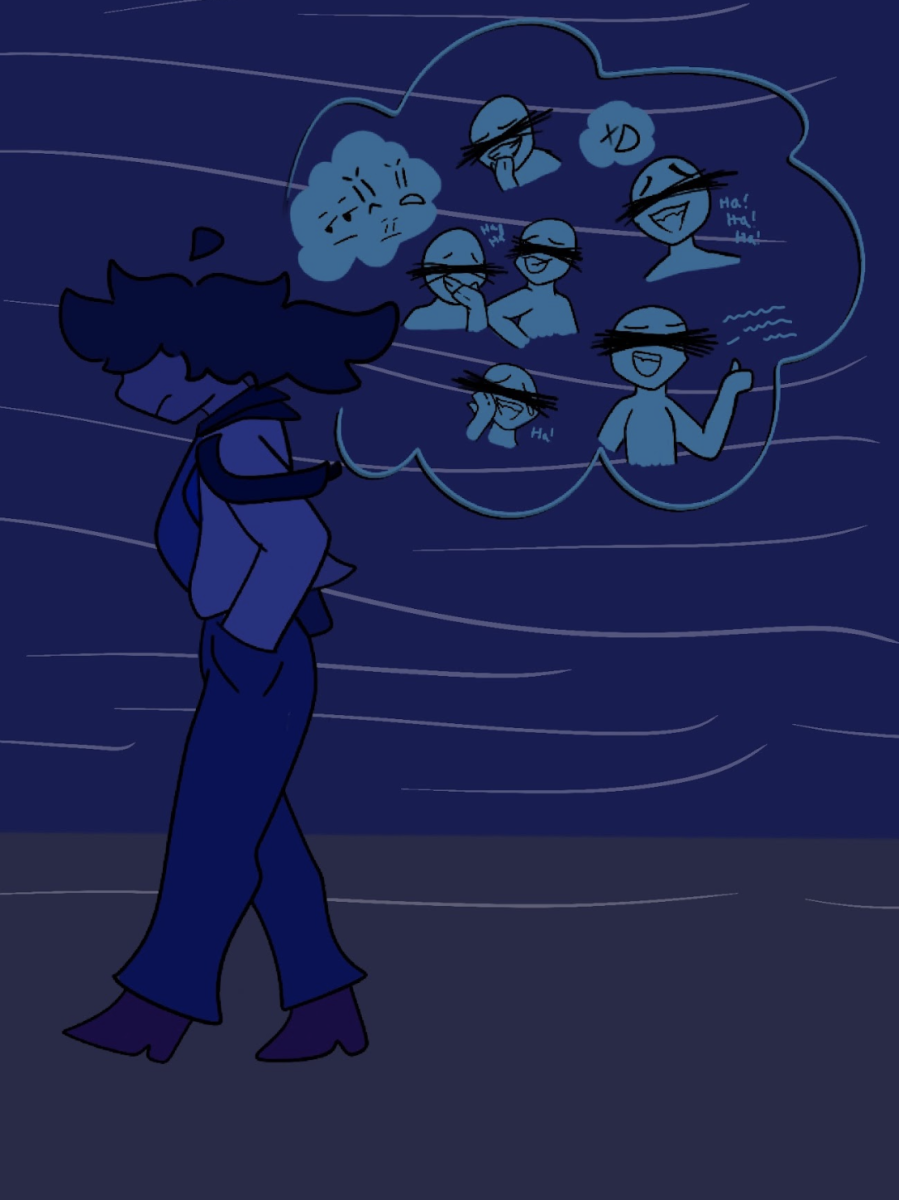As if keeping up with clubs, academics, and sports was not already complicated enough, Mother Nature wants to put an even more significant burden of social anxiety through the “imaginary audience.” This term may sound foreign, but we all share it as part of the awkward age of teenagers transitioning into adulthood. Have you ever rehearsed the same situation more than you would like to admit, only to realize it was not a big deal later? Ever accidentally say something “cringy” while talking with friends just to figure out no one was even paying attention? Maybe you did not have the chance to get ready in the morning, and you think everyone is judging or making comments about you? These simple actions are your brain performing to an “imaginary audience.”
One aspect of the condition is the belief that others are constantly nitpicking or meticulously making fun of your behaviors or appearance. According to the American Psychological Association [1], “The adolescent feels as though he or she is continually the central topic of interest to a group of spectators when, in fact, this is not the case.” Constantly feeling internal pressure and expectation is exhausting, so why do we do it?
Like it or not, we have evolved into a highly social species with complex rules when interacting with others. In adolescence, the brain works overtime to learn all the dos and don’ts of conversing with people of all ages and backgrounds. The result of this learning allows the brain to develop the ability to be more aware of our surroundings in the hopes of being more socially likable and similar to others. When considering young children who have yet to enter this growth phase, they will often make inappropriate comments in social settings. In contrast to older people, they will often have enough social awareness not to blurt out their thoughts and opinions. However, there are times when the “imaginary audience” burden is overwhelming, leading to anxiety and low self-esteem, which is entirely self-inflicted.
As exhausting as it is, remember this is vital to developing a healthy understanding of one’s relationship with the world. The problem becomes apparent when our brain tries to do whatever it can to please the “imaginary audience.” When pinpointing and recognizing it as thoughts, we can escape the anxiety it causes. But when we identify with the idea and make drastic situations in our heads, the crushing blows of social anxiety will perpetuate. As a result, we should recognize the imaginary audience for what it is by using it to our advantage to evaluate a situation, but we should not let it take over our lives.









